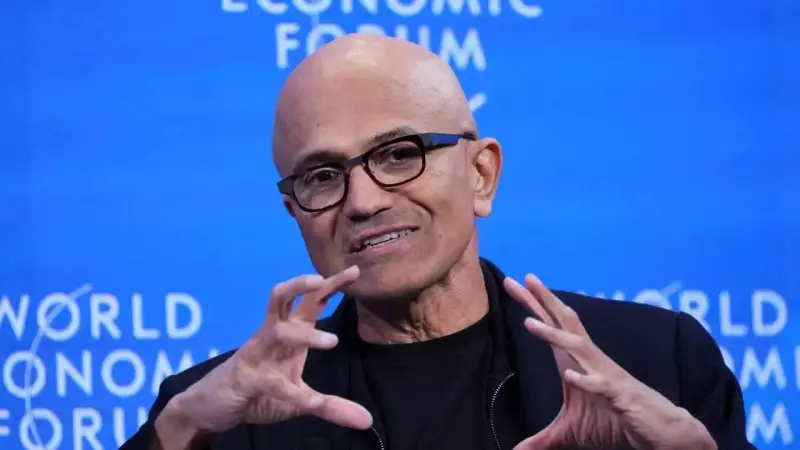
In a significant revelation about the tech industry's artificial intelligence landscape, Microsoft CEO Satya Nadella has confirmed that his company enjoys comprehensive access to OpenAI's intellectual property portfolio, with the sole exception of consumer hardware products.
Exclusive Access to OpenAI Technology
During a recent podcast interview, Nadella provided unprecedented clarity about the scope of Microsoft's partnership with the artificial intelligence research company. When directly questioned about whether Microsoft possesses access to OpenAI's intellectual property, the CEO responded affirmatively, stating: "In our case, the good news here is OpenAI has a program in which we have access to."
When pressed further about whether this access extends to all of OpenAI's IP, Nadella confirmed unequivocally: "All of it." The only exclusion clarified during the discussion was consumer hardware, to which Nadella simply responded, "That's it" when questioned about limitations.
Mutual Benefits and Strategic Investments
Nadella emphasized that the relationship between the two technology giants has been mutually beneficial. "We gave them a bunch of IPs as well to bootstrap them, right? So, this is one of the reasons why they had a mass because we built all these supercomputers together, and they benefited from it. Rightfully so," the Microsoft CEO explained.
This revelation comes at a crucial time when Microsoft faces increasing competition from Google in the artificial intelligence domain. The extensive access to OpenAI's technology provides Microsoft with significant AI capabilities that help mitigate concerns about Google's competitive advancements in the field.
Microsoft's Chip Development Challenges
Meanwhile, Microsoft has encountered setbacks in its internal AI chip development program. According to a report from The Information, Microsoft has delayed mass production of its next-generation Maia AI chips until 2026. The tech giant has pushed back mass production of these new AI chips, previously codenamed Braga, by at least six months.
The Braga chip, expected to be renamed Maia 200 upon release, was originally scheduled for deployment in data centers this year. However, unanticipated design changes, staffing constraints, and high turnover have made this timeline unachievable.
Google's Competitive Advantage
While Microsoft grapples with chip production delays, Google has strengthened its position in the AI infrastructure market through its Tensor Processing Units (TPUs). These specialized chips, designed specifically for machine learning workloads, have become a preferred option for training AI models.
Google's TPUs have established themselves as reliable hardware for AI development, having been refined through multiple generations. The chips are widely available through Google Cloud and have been used to train major AI models, making them a proven and accessible option for AI developers worldwide.
OpenAI's Multi-Pronged Chip Strategy
OpenAI, while maintaining its close partnership with Microsoft, has simultaneously pursued a diversified chip strategy. The AI research company is building its own AI chips in collaboration with Broadcom. Additionally, OpenAI has struck separate deals with Nvidia, AMD, and Google for AI chips, data centers, and AI model training capabilities.
This multi-vendor approach ensures that OpenAI maintains flexibility in its hardware infrastructure while continuing to leverage Microsoft's extensive resources and IP access. The strategic partnerships across multiple chip manufacturers position OpenAI to navigate potential supply constraints and technological limitations that might affect single-vendor dependencies.
The evolving dynamics between these technology giants highlight the intensifying competition in the artificial intelligence sector, with intellectual property access and hardware development emerging as critical battlegrounds that will shape the future of AI innovation and deployment.






